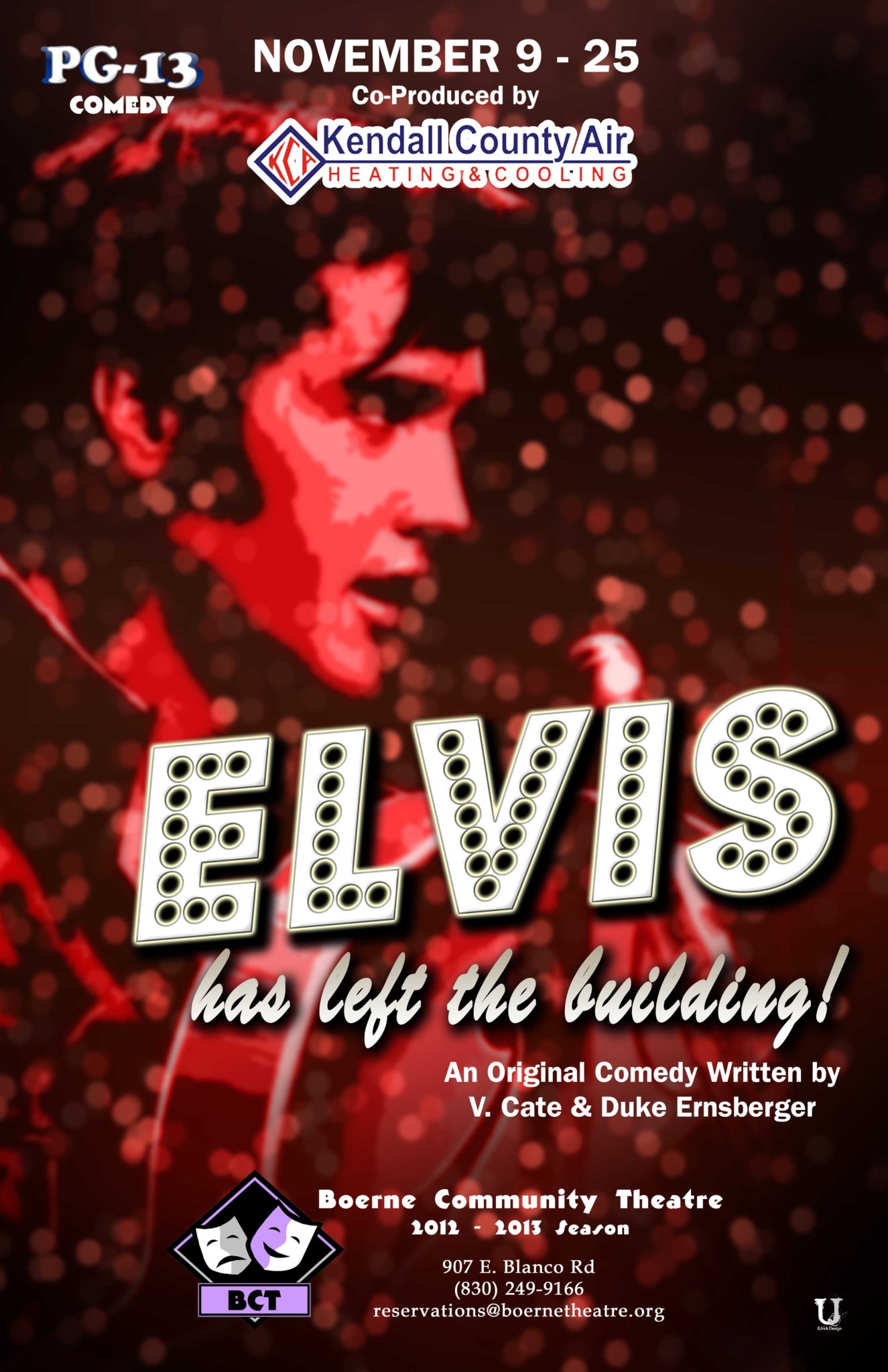The phrase "Who has left the building" has become an iconic saying in the world of music, particularly during concerts and live performances. It is often associated with legendary musician Elvis Presley, and understanding its origins and significance adds depth to any music enthusiast's knowledge. This article delves into the meaning, history, and cultural impact of this famous phrase, providing insights that will enrich your understanding of its relevance in today's music scene.
Concerts and live performances are moments of connection between artists and their fans. However, the phrase "Who has left the building" has transcended its original context to become a symbol of finality and reverence. This article will explore the origins of the phrase, its cultural significance, and how it continues to resonate in modern times.
Whether you're a fan of Elvis Presley or simply curious about the phrase's origins, this article aims to provide a detailed analysis. By the end, you'll have a deeper appreciation for the phrase and its place in music history. Let's dive in!
Read also:Zach Bryan Rose The Untold Story Of A Rising Star
Table of Contents:
- The Origin of "Who Has Left the Building"
- Elvis Presley: The Man Behind the Phrase
- Biography of Elvis Presley
- The Role of the Phrase in Concert Tradition
- Modern Usage of the Phrase
- Cultural Impact and Legacy
- Common Misconceptions
- The Fan Perspective
- The Phrase in the Music Industry
- Conclusion and Final Thoughts
The Origin of "Who Has Left the Building"
The phrase "Who has left the building" is often attributed to Colonel Tom Parker, Elvis Presley's manager. It was first used during one of Elvis's concerts in the 1950s to announce the end of the performance. The phrase was intended to signal to the audience that Elvis had truly left the stage and would not be returning for an encore. This simple yet effective announcement became a hallmark of Elvis's concerts, leaving a lasting impression on fans.
Colonel Parker's use of the phrase was strategic. By making it clear that Elvis had exited the building, he aimed to prevent fans from lingering in hopes of seeing their idol again. Over time, the phrase became synonymous with the end of a performance and a symbol of Elvis's influence in the music industry.
Historical Context of the Phrase
The phrase emerged during a period when live performances were becoming increasingly popular. In the 1950s, rock and roll was revolutionizing the music scene, and Elvis was at the forefront of this movement. His concerts were known for their energy and excitement, and the phrase "Who has left the building" added a touch of drama to the conclusion of each show.
Elvis Presley: The Man Behind the Phrase
Elvis Presley, often referred to as the "King of Rock and Roll," was a pivotal figure in the music industry. His influence extended beyond his music, shaping the culture and fashion of his time. Understanding Elvis's life and career provides context for the significance of the phrase "Who has left the building."
Elvis's Contribution to Music
Elvis revolutionized the music industry with his unique blend of rock and roll, country, and rhythm and blues. His charisma and talent made him a global icon, and his concerts were legendary. The phrase "Who has left the building" became a part of his legacy, symbolizing the end of an unforgettable performance.
Read also:Gypsy Rose Mother Name Unveiling The Truth Behind The Deceptive Relationship
Biography of Elvis Presley
Elvis Aaron Presley was born on January 8, 1935, in Tupelo, Mississippi. He grew up in a modest family and developed a love for music at a young age. Below is a summary of his life and career:
| Full Name | Elvis Aaron Presley |
|---|---|
| Birthdate | January 8, 1935 |
| Birthplace | Tupelo, Mississippi |
| Occupation | Singer, Actor |
| Years Active | 1953–1977 |
The Role of the Phrase in Concert Tradition
The phrase "Who has left the building" has become a staple in concert tradition. It signifies the conclusion of a performance and serves as a reminder of Elvis's influence on live music. Many artists today incorporate similar phrases into their shows to emulate the drama and finality of Elvis's performances.
How the Phrase Shapes Audience Expectations
Audiences attending concerts expect a certain level of excitement and drama. The use of phrases like "Who has left the building" helps create a memorable experience. It signals the end of the show while leaving a lasting impression on the audience.
Modern Usage of the Phrase
In contemporary times, the phrase "Who has left the building" has transcended its original context. It is now used in various settings, from music to pop culture, to signify the end of an event or performance. Its versatility and iconic status have ensured its continued relevance.
Examples of Modern Adaptations
- Music festivals often use similar phrases to signal the end of a day's performances.
- Social media platforms feature memes and posts referencing the phrase, keeping it alive in digital culture.
- Films and television shows occasionally incorporate the phrase to add authenticity to their music-related scenes.
Cultural Impact and Legacy
The cultural impact of the phrase "Who has left the building" cannot be overstated. It has become a symbol of Elvis's legacy and the enduring influence of rock and roll. The phrase continues to resonate with fans of all ages, serving as a reminder of the power of live music.
Elvis's Influence on Popular Culture
Elvis's impact on popular culture extends beyond music. His style, demeanor, and performances have inspired countless artists and fans. The phrase "Who has left the building" is just one example of how his influence permeates modern culture.
Common Misconceptions
Despite its widespread use, there are misconceptions about the phrase "Who has left the building." Some believe it was coined by Elvis himself, while others think it was used exclusively in his later years. Understanding the truth behind these misconceptions enhances our appreciation of the phrase's history.
Clarifying the Facts
- The phrase was first used in the 1950s by Colonel Tom Parker.
- It was not exclusively used during Elvis's later Las Vegas performances.
- Elvis himself did not coin the phrase but embraced it as part of his concert tradition.
The Fan Perspective
For fans, the phrase "Who has left the building" evokes a sense of nostalgia and excitement. It represents the culmination of a memorable concert experience and the magic of live music. Fans often share stories of attending Elvis's concerts and hearing the phrase for the first time.
Stories from Fans
Many fans recall the thrill of hearing the phrase during Elvis's performances. It marked the end of an unforgettable evening and left a lasting impression. These stories highlight the emotional connection fans have with the phrase and its significance in their lives.
The Phrase in the Music Industry
The music industry has embraced the phrase "Who has left the building" as a symbol of finality and respect. It is often used by artists and promoters to signify the conclusion of a performance, paying homage to Elvis's legacy. The phrase's continued use demonstrates its enduring relevance in the industry.
How Artists Use the Phrase Today
Modern artists incorporate the phrase into their performances to create a sense of drama and closure. It serves as a nod to Elvis's influence and a reminder of the power of live music. By using the phrase, artists connect with their audiences on a deeper level, enhancing the overall concert experience.
Conclusion and Final Thoughts
The phrase "Who has left the building" has become an integral part of music history and culture. Its origins, significance, and cultural impact highlight its importance in the world of live performances. Understanding its meaning and origins enriches our appreciation of Elvis Presley's legacy and the power of music.
In conclusion, the phrase continues to resonate with fans and artists alike, serving as a reminder of the magic of live music. We invite you to share your thoughts and experiences in the comments below. Additionally, explore other articles on our site to deepen your knowledge of music and its history.
Thank you for reading, and may the spirit of Elvis live on in every concert you attend!


